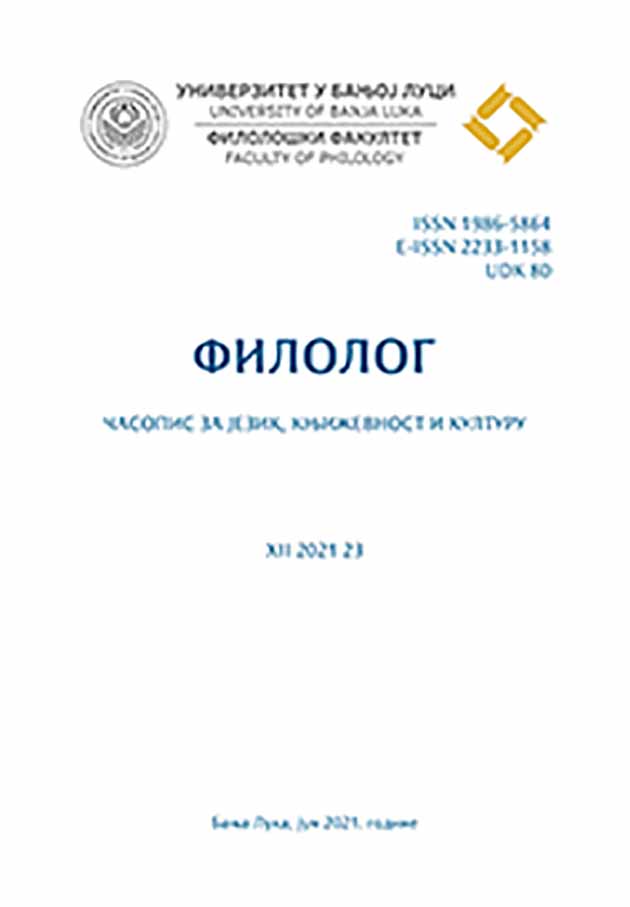Говорни чин претње у аподози кондиционалних реченица
Threat as a Speech Act in Conditional Clause Apodosis
Author(s): Marina J. ŠaferSubject(s): Morphology, Syntax, Pragmatics, South Slavic Languages, Philology
Published by: Филолошки факултет Универзитета у Бањој Луци
Keywords: conditional clause; apodosis; protasis; threat; comissive; directive, order; prohibition;
Summary/Abstract: This paper examines conditional clauses with the apodosis that qualifies as threat speech (for example, Убићу вас од батина будете ли сликали мојудецу!). It also addresses the communicative function of the protasis – most often in the form of an indirect directive (order/prohibition: → Немојтесликати моју децу!), while in lesser extent the protasis only describes an unfortunate situation, without a directive value (А ти, ако си ме слагалаза сестрин алиби, кунем ти се да ћеш прва завршити у затвору. → Бољеби ти било да ме ниси слагала.) The apodosis can imply concrete, definite(летећете с посла) or imprecise, uncertain (може свашта да се деси), and sometimes even overreacting, harsh consequences (задавићу те → наудићути) that will befall the addressee if they remain deaf on the speaker’s order/prohibition. Apart from the pragmatic, the paper analyses the syntactic-semantical characteristics of these conditional clauses: the use of conjunctions(ако, ли, уколико), the use of protasis predicate, apodosis predicate (verbforms, the use of aspectual verbs in the protasis predicate – наставити,престати, performative verbs – клети се, гарантовати, упозорити, and modal verbs – имати, морати in the apodosis predicate, etc.), frequent adverbial determiners in the protasis (e.g. још једном), the arrangement of the protasis and apodosis part, etc. Since the threat predominantly occurs in non-formal, vernacular (sometimes rude and vulgar) communication, the corpus is made with examples from Serbian television shows of different genres (comedy, drama, and crime), and Serbian internet portals. It was determined that the protasis predicate is predominantly formed by present verbs of perfective aspect (mostly aspectual verbs), but in this role Future II also occurs, while the apodosis predicate is mainly in Future I form, but we also have present verbs of the imperfective aspect, as well as the imperative mood of the verb заборавити (e.g. заборави да имаш породицу). The particleли with a conjunctional value, most commonly accompanied by a protasis predicate in the form of Future II (будеш ли / не будеш ли), is frequent as well. In the majority of examples, the protasis precedes the apodosis, which is expected, as this arrangement depicts the cause-consequence flow.
Journal: Филолог – часопис за језик, књижевност и културу
- Issue Year: 2021
- Issue No: 23
- Page Range: 416-441
- Page Count: 26
- Language: Serbian

